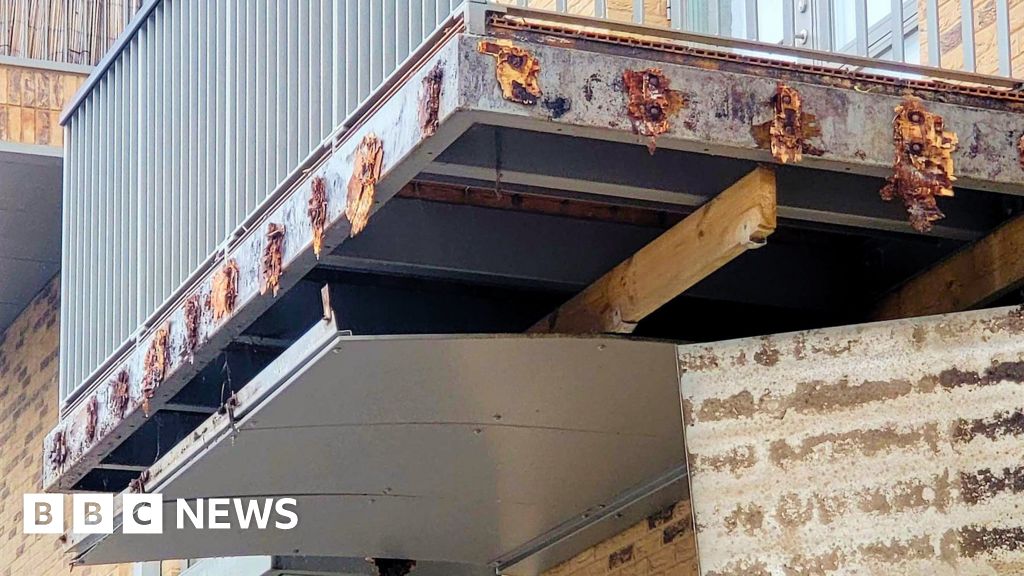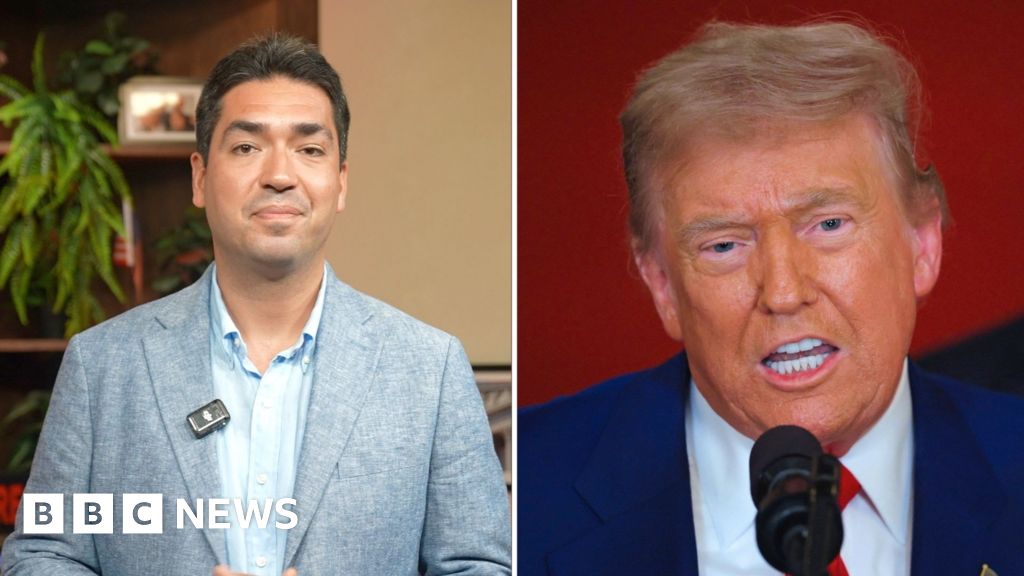'We are exhausted' - how Iranians are feeling after fragile ceasefire
"Ordinary people suffered the most," says Sirous, an Iranian who requested his name be changed for his safety.
Speaking to the BBC from his home city of Tehran, he says: "I believe the whole war was orchestrated.
"Israel and the US came in and destroyed military and nuclear sites, Iran launched a few missiles, hit a US base, and both sides are satisfied," he says - but adds it is the Iranian people who are left to suffer.
Sirous is one of millions of Iranians whose emotions are conflicted since a ceasefire was announced between Iran and Israel.
It comes after 12 days of strikes between the two sides. Iran's health minister said on Tuesday that 606 people have been killed, although independent groups estimate the death toll to be twice this.
The war has stirred within Iranians a mix of fear, despair, and - among some - flickers of hope. Some fear for their safety and the future of their country, while others speculate whether the conflict might usher in real political change.
Like Sirous, Minoo - not her real name - fears the impact on the Iranian people.
"What truly frightens me," she says, "is the devastation of war combined with sanctions and a dead economy, all brought on by the regime's greed.
"We've paid the price, with our money and with our lives, and we will keep paying.
"We, the Iranian people, are exhausted. We don't want war, we don't want sanctions, and we don't even want a ceasefire. We just want to live in peace in the country we love."
She adds: "What scares me more than the war or even the ceasefire is the wounded and humiliated Islamic Republic. They couldn't prevail [over] the US and now the Iranian people are within their reach, they'll multiply executions and torture."
The Iranian authorities have long cracked down on dissent, a crackdown that intensified after widespread protests in 2022. At least 901 people were reportedly executed in Iran last year, according to the UN human rights chief.
BBC journalists are unable to report from inside Iran due to restrictions by the country's government. BBC Persian does not have an office there and speaks to Iranians through WhatsApp and Telegram.
Mehdi also tells the BBC he feels concerned the costs of war will be borne by the people, not the regime.
"The government will prioritise rebuilding its military and nuclear capabilities over investing in public infrastructure.
"And they know how to exploit the dead better than anything else, using their deaths to silence dissent."
He adds: "They may offer people temporary freedoms, but it won't last."
The ceasefire - announced by Donald Trump - came into effect on Tuesday morning, but was quickly put under pressure as both sides accused the other of violating the agreement.
Explosions were heard in Iran's northern Mazandaran province on Tuesday.
Sara, also not her real name, says she felt a mix of anxiety and confusion as the truce began.
"I did not believe the ceasefire, it's not likely of them," she says.
Others who spoke to the BBC are similarly cynical about the ceasefire's viability.
"This ceasefire will definitely collapse," says Arman, not his real name. "Israel hasn't achieved all its goals... the regime must fall."
Kian, also a pseudonym, added: "This ceasefire is just a trap to lure [Iranian Supreme Leader Ayatollah Ali] Khamenei out of his hole.
"Israel and the US never make moves without purpose."
He adds that he does not think that this truce will last and that it will end sooner or later: "This war won't end with a ceasefire, it will end with the fall of this regime. And the regime does not stand a chance."
Just hours after the truce was announced, the Israeli army claimed to have intercepted missiles fired from inside Iran, a claim Iran denied.
Israel said it hit an Iranian radar array but then "refrained from further attacks" after PM Benjamin Netanyahu spoke to Donald Trump.
As the truce remains precarious, all eyes are now on the skies to see whether calm will last.











